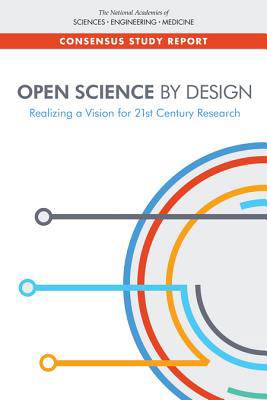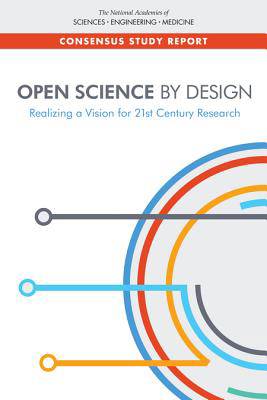
- Retrait gratuit dans votre magasin Club
- 7.000.000 titres dans notre catalogue
- Payer en toute sécurité
- Toujours un magasin près de chez vous
- Retrait gratuit dans votre magasin Club
- 7.000.000 titres dans notre catalogue
- Payer en toute sécurité
- Toujours un magasin près de chez vous
Open Science by Design
Realizing a Vision for 21st Century Research
National Academies of Sciences Engineering and Medicine, Policy and Global Affairs, Board on Research Data and Information, Committee on Toward an Open Science EnterpriseDescription
Openness and sharing of information are fundamental to the progress of science and to the effective functioning of the research enterprise. The advent of scientific journals in the 17th century helped power the Scientific Revolution by allowing researchers to communicate across time and space, using the technologies of that era to generate reliable knowledge more quickly and efficiently. Harnessing today's stunning, ongoing advances in information technologies, the global research enterprise and its stakeholders are moving toward a new open science ecosystem. Open science aims to ensure the free availability and usability of scholarly publications, the data that result from scholarly research, and the methodologies, including code or algorithms, that were used to generate those data.
Open Science by Design is aimed at overcoming barriers and moving toward open science as the default approach across the research enterprise. This report explores specific examples of open science and discusses a range of challenges, focusing on stakeholder perspectives. It is meant to provide guidance to the research enterprise and its stakeholders as they build strategies for achieving open science and take the next steps.
Spécifications
Parties prenantes
- Auteur(s) :
- Editeur:
Contenu
- Nombre de pages :
- 232
- Langue:
- Anglais
Caractéristiques
- EAN:
- 9780309476249
- Date de parution :
- 09-09-18
- Format:
- Livre broché
- Format numérique:
- Trade paperback (VS)
- Dimensions :
- 152 mm x 226 mm
- Poids :
- 376 g







